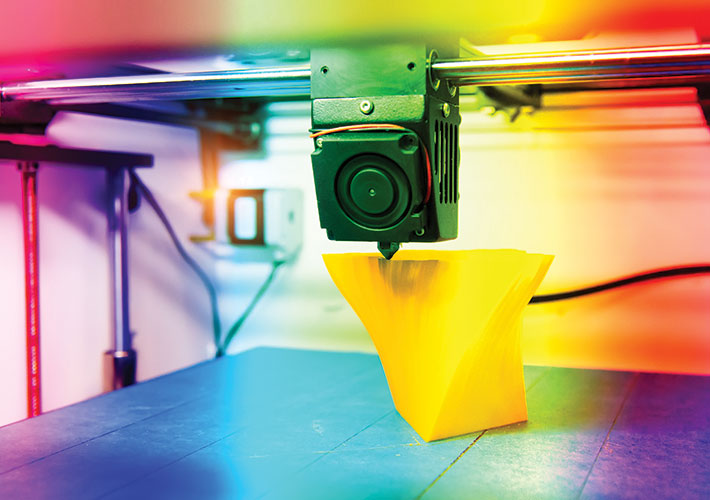
ASTM International and Innovate UK Partner to Develop International Additive Manufacturing Standards
Global standards organization ASTM International and three United Kingdom-based entities are partnering to fast-track the creation of technical standards needed by the additive manufacturing industry.
ASTM International’s Additive Manufacturing Center of Excellence – in which the UK-based Manufacturing Technology Centre (the MTC) is a founding partner – identified three potential areas for standardization. The effort will be supported through a £300,000 investment from Innovate UK (a UK government agency) to BSI(British Standards Institution) in partnership with ASTM International.
“Innovate UK is pleased to support the creation of Publicly Available Specifications to help drive economic growth through innovation in high-value manufacturing,” said Robin Wilson, the innovation lead for high value manufacturing at Innovate UK. “This is a smart partnership that brings together UK expertise in key areas of additive manufacturing along with the infrastructure and leadership of ASTM International and its young center of excellence.” Wilson is on the advisory board of the center of excellence.
BSI will coordinate the development of the three standards, which are focused on directed energy deposition (DED), one of seven categories of additive manufacturing as defined by ASTM International and the International Organization for Standardization (ISO/ASTM 52900). DED uses focused thermal energy (e.g., laser, electron beam, plasma arc) to fuse materials by melting as they are being deposited.
ASTM International’s global additive manufacturing director, Dr. Mohsen Seifi, notes that DED technology offers unique advantages related to speed and build-envelope limitations. However, he adds, “DED is not as widelyused nor understood as some of the other additive manufacturing processes. Lack of standards are quite evident.”
“Among their many benefits, these new standards have the potential to help manufacturers and suppliers make products with consistent and reliable quality,” he said.
The three DED standards under development are:
- A specification for using wire as a DED feedstock, helping address key requirements including composition, dimensional tolerances, contamination, packaging, handling, and storage;
- A standard for nondestructive testing (NDT) which aims to address typical causes and natures of DED defects while also reviewing traditional test methods for applicability to DED; and,
- A standard for DED wire-and-arc additive manufacturing (WAAM), which aims to cover terminology, material opportunities and restrictions, geometrical constraints, finishing requirements, inspection, and more.
The MTC, home of the UK’s National Centre for Additive Manufacturing, has supported this Publicly AvailableSpecifications activity through the initial consultation process, selection of suitable topics for consideration, and identification of potential partners to form the committees. It will continue to provide support through the development of the Publicly Available Specifications and subsequent international standards.
In addition to the organizations already mentioned, more than a dozen private companies are supporting the collaboration, including Airbus, GE, GKN, BAE Systems, Rolls-Royce, and many others.
After the Publicly Available Specifications are created through BSI, ASTM International’s committee on additive manufacturing technologies (F42) plans to develop international standards based on each through a new licensing agreement. Notably, ASTM International has a preexisting partner standards development organization agreement (PSDO) with the International Organization for Standardization (ISO) in additive manufacturing which allows for creation of joint ASTM International/ISO standards. BSI, as the UK member of ISO, will be able to adopt these international standards as the UK national standard.
For more information visit www.amcoe.org.
 SN Home
SN Home Archive
Archive Advertisers
Advertisers Masthead
Masthead RateCard
RateCard Subscribe
Subscribe Email Editor
Email Editor